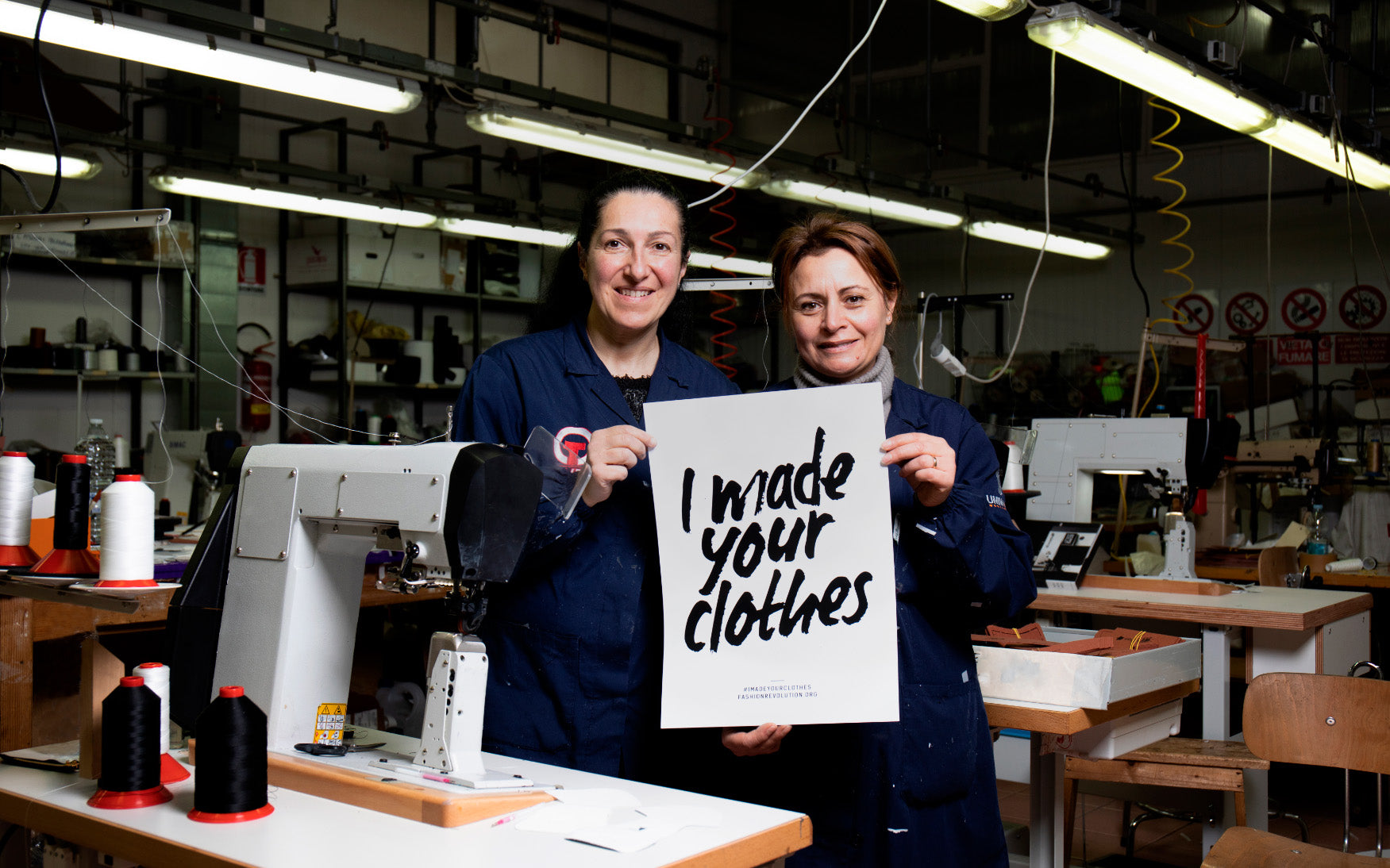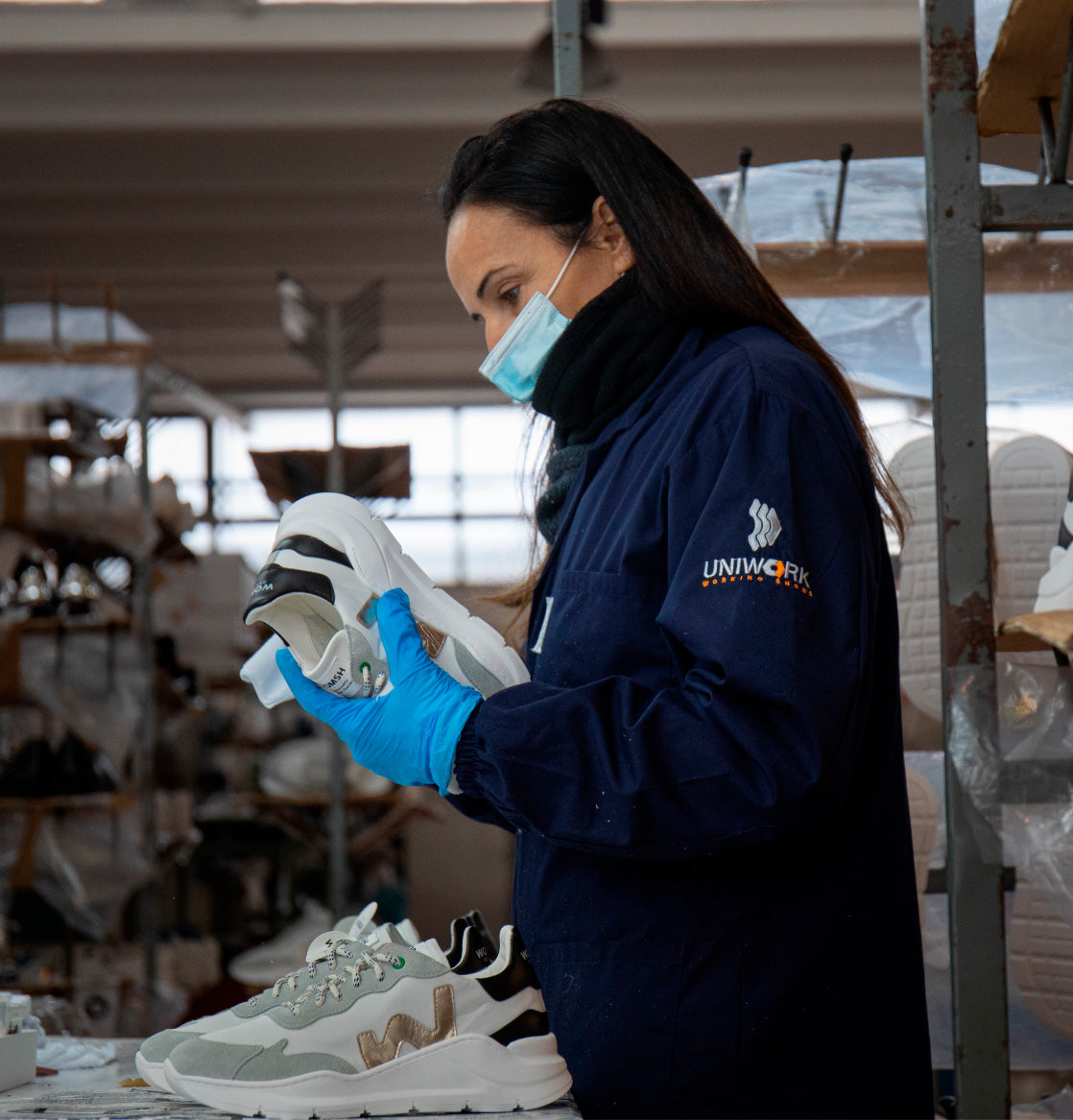5 - Was the worker paid fairly?
The living wage must guarantee a decent standard of living for all our workers.
Womsh commits to paying fair wages to every single person working along the entire supply chain.

WHY?
In the world, over 75 million workers are employed in the clothing and footwear sector. Most of them do not receive an adequate salary, are not hired with a formal contract, and cannot meet their basic needs.
Despite the UN and the International Labour Organization (ILO) recognizing the living wage as
A FUNDAMENTAL HUMAN RIGHT,
he reality is that millions of workers in the textile industry are exploited as low-cost labor and forced to live in poverty, deprived not only of wages but also of access to healthcare, adequate food, and education.
At Womsh, all workers in our supply chain receive fair compensation capable of ensuring a decent and satisfactory standard of living. This is why we have included a living wage guaranteed according to European standards in our ethical code and developed an approach to monitor the wage conditions of our partner factories.

WHAT IS A LIVING WAGE?

According to the definition of the Global Living Wage Coalition (GLWC):
A living wage is a wage sufficient to ensure a worker and their family in a given location a decent standard of living. It should be earned in a standard working week of no more than 48 hours and must be enough to pay for food, water, housing, education, healthcare, transport, clothing, and other essential needs, including savings for emergencies.
Why the minimum wage is not enough
In many countries in Asia and Eastern Europe, there is no legally established minimum wage, and when there is, it is not enough to cover basic needs. Moreover, workers are almost never fairly represented in the minimum wage bargaining process, or not at all. This happens because the governments of the producing countries have no incentive to increase minimum wages, fearing that brands may move their orders to countries where labor costs are even lower.

"PARAMETERS FOR CALCULATING A LIVABLE WAGE"
Calculating a living wage is a complex operation. Various scholars, trade unions, and worker rights groups - like the Global Living Wage Coalition (GLWC) - have developed reference parameters for one or more countries and regions, allowing for the estimation of local costs for a typical family in over 20 countries.
A living wage must be:
• transparent in method and conclusions.
• Regularly reviewed to ensure that inflation and the rise in costs of primary goods are included.
• Established following negotiations with national or regional trade unions (to avoid wage competition).
• Sufficient to cover all the basic needs of a family and allow savings. This includes single mothers or female workers without partners supporting two elderly relatives with a single salary.
• A livable wage benchmark should not impose a cap on wages but promote progress and ensure a minimum income for all workers.
Womsh supports this methodology as it involves local people and organizations to estimate the real cost of living for a worker and their family in a given place.
HAVE YOU EVER WONDERED WHAT HIDES BEHIND A TOO-LOW PRICE?
When a product costs little, it means someone else is paying the difference, and in most cases, its the workers. Relentless rhythms and low prices inevitably lead fashion brands (often claiming to be sustainable) to outsource production phases to countries where labor costs are low, workers have no rights, and legislation is easily circumvented.

MODERN SLAVERY
In Guandong, China, young women do up to 150 hours of overtime per month. 60% of them do not have a contract, and 90% do not have access to social security. In Bangladesh, textile workers earn 44 dollars a month (compared to a minimum wage of 109 dollars).
There are too many people in the world producing things they will never be able to afford.
Our workers should be able to afford a pair of Womsh with three days of their work. If we produced in South America, it would take 12 days, and in Asia, even 16. This is our parameter to explain the concept of a fair salary.
Our governance
Womsh is a limited liability company, and its founder is the sole shareholder.
In terms of governance, we have chosen not to have investors to satisfy with quarterly dividends because we believe the integrity of our project and our mission should not be compromised by capitalist interests that do not concern the will to change the rules of the fashion industry.
Thats why we can go against the current and be a company that can afford to grow slowly, without succumbing to the unsustainable rhythms dictated by the market.

1 - What is the product made from?

2 - Where was it made?

3 - Who made it?






